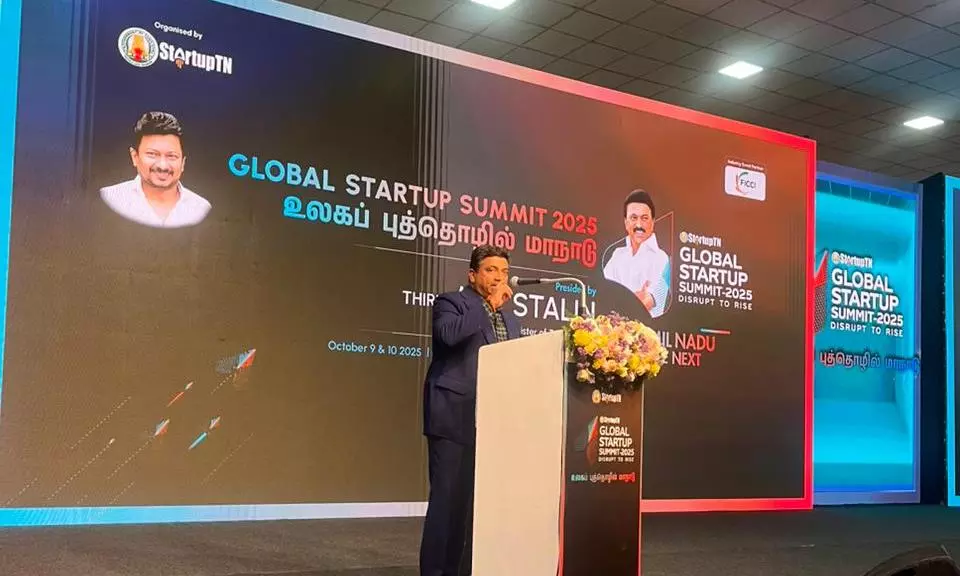
Tamil Nadu IT Minister PTR unveils AI roadmap, outlines 3 core principles
PTR says TN is integrating AI to boost efficiency in critical sectors, building data connectivity platforms to enhance citizen-govt interaction and empowering innovators with open data platform

Tamil Nadu’s IT and Digital Services Minister Palanivel Thiaga Rajan, while addressing the Global Startup Summit in Coimbatore on Friday (October 10), outlined the state’s ambitious Artificial Intelligence (AI) roadmap, calling it “a new innovation system built on exposure, integration, and intelligent governance.”
Stress on exposure, openness to ideas
Thiaga Rajan (PTR) began by emphasising the need for young people to be exposed to “as many new ideas and concepts as possible,” noting that such exposure is critical to unlocking India’s full potential. “We pride ourselves on education and achievement,” he said, “but innovation demands openness—to other ideas, other places, and other perspectives.”
Also read: How AI is revolutionising cancer research at Indian educational institutions
Core principles
Focusing on the state’s AI initiative, PTR explained that it rests on three core principles. First, the government itself must adopt AI models and innovations to improve efficiency in sectors such as health, agriculture, and sanitation. “Governments everywhere face enormous pressure to deliver,” he observed. “AI can help us meet those expectations better.”
Second, Tamil Nadu aims to build a data and processing power connectivity platform that enhances citizen–government interaction. The platform will integrate large datasets, allowing start-ups and innovators to leverage anonymised government data for building scalable solutions. “Nowhere else,” PTR noted, “does such a vast trove of public data exist. Our task is to make it clean, safe, and useful.”
Also read: AI can add up to $600 bn to India's GDP by 2035: NITI Aayog
Innovations, train and test models
He revealed that workshops had been conducted across 55 government departments, identifying 55 priority use cases for AI, with 15 already showing strong impact potential in education, health, and road safety. Among the key innovations are ePathway, an AI-based app for cataract detection, and COVA, a mobile tool that screens for oral diseases—both designed to strengthen public health access through early diagnosis.
PTR also detailed Tamil Nadu’s efforts to establish an AI open data platform, providing sanitised datasets for start-ups to train and test models. “This was an idea inspired by one of India’s unicorns,” he said, referring to Uniphore. “We are cleaning and standardising more than 100 datasets across domains such as agriculture, education, and traffic.”
Aim to empower start-ups with data, AI
Beyond AI applications, he highlighted efforts to digitise records across 530 welfare programmes and integrate data from over 370 schemes, creating a unified citizen-benefit system. “This not only helps us clean up our governance processes,” he says, adding, “but also ensures that new programmes are designed with insight and precision.”
Also read: OpenAI vs Grok vs Gemini in world's first AI chess tournament: Guess who won?
Calling AI a “strategic pillar for growth, wealth, and diversity,” PTR reaffirmed his commitment to fostering an innovation ecosystem where government data and AI tools empower start-ups. “Tamil Nadu is building a culture of AI sophistication,” he concluded. “And start-ups have a vital role to play in shaping this intelligent, inclusive future.”

